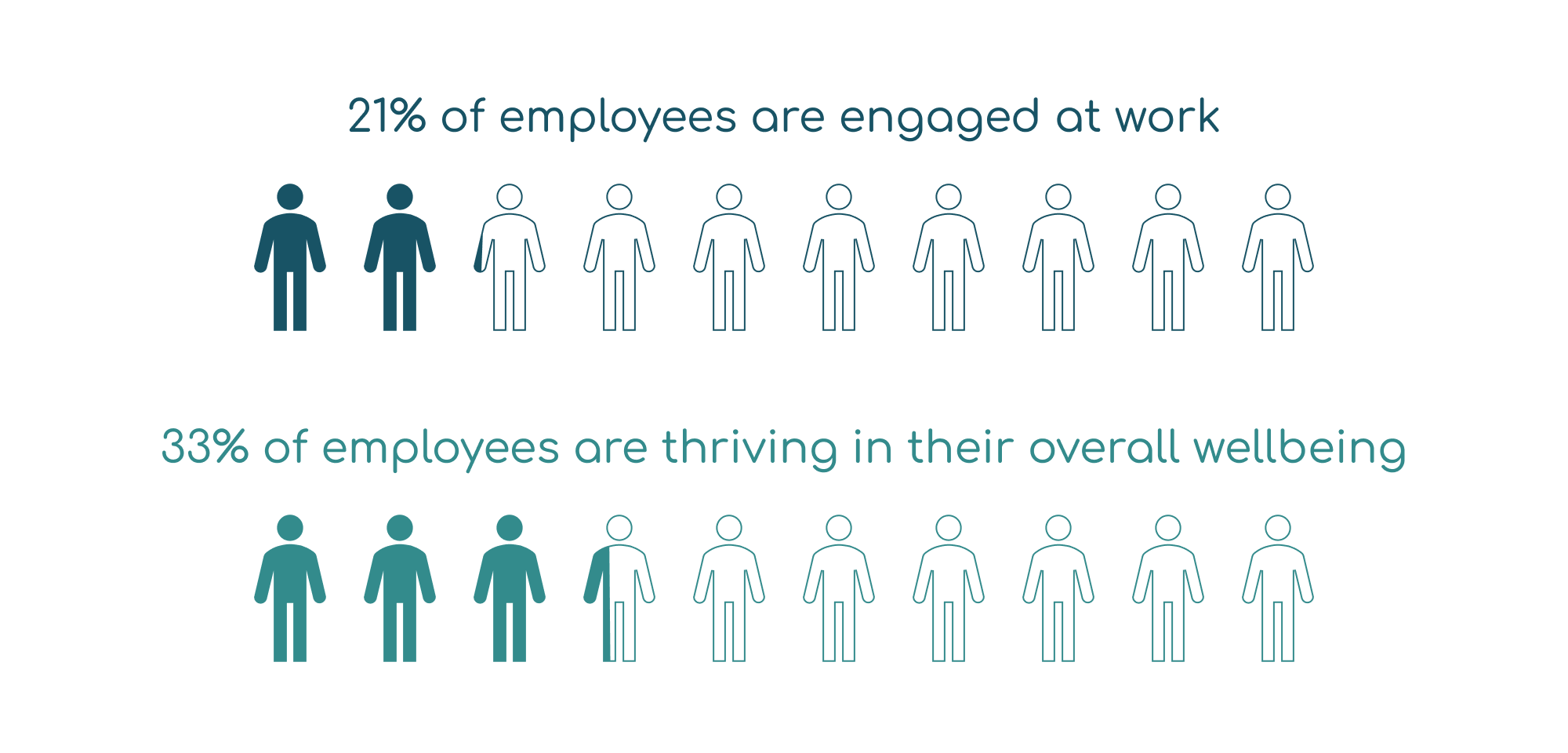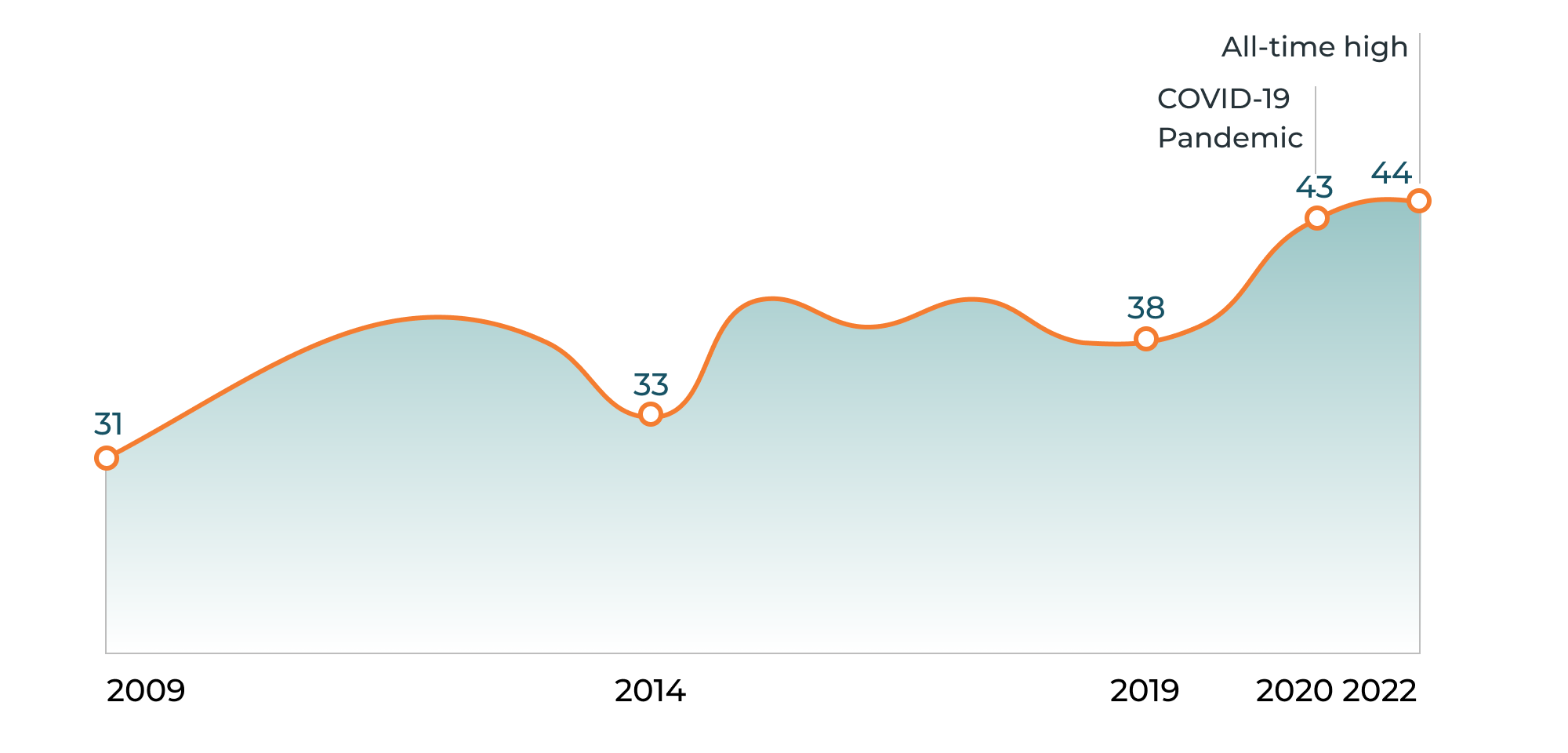Quiet Quitting Trend And How To Deal With It?

The phenomenon of quiet quitting is an excellent opportunity to rethink the organizational culture and the construction of relations between the employee and the employer. For a few years, the term has become a corporate buzzword and a new cultural phenomenon. What to do with this phenomenon? How to react? What does it threaten? Let’s understand this further.
What is a “Quiet Quitting”?
No, this does not mean the employee suddenly quits or stops working quietly without explanation. Quiet Quitting means refusing to perform tasks beyond the scope of assigned duties and/or reducing psychological involvement in work.
Quiet Quitting employees continue to perform their primary duties; however, they will not take an active part in corporate life: they no longer stay to overwork, do not take on additional tasks, do not show initiative, and avoid unnecessary meetings.
Generally, this is a rejection of employees from the mentality of the “hustle culture” that has long been associated with career success and climbing the corporate ladder. In a practical sense, from the employee’s point of view, this means not allowing the employer to give more labor than he pays for. In psychological terms, it means working within prearranged volumes and limits, rejecting unnecessary risks for stress.
And Quiet Quitting is about a clear line between work and personal life, the free time that a person wants to devote NOT to work. Therefore, we observe a particular shift in the meanings and foci of life.
Why and where did it come from?
Conditions of instability, uncertainty, complexity and ambiguity, natural disasters, the ongoing pandemic of COVID-19, the war unleashed by Russia... Many external factors have significantly affected people’s lives and employment: massive job losses, the consequences of remote work, forced change in the type of work, emigration, etc. And whether we like it or not, “quiet quitting” is not going anywhere any time soon because it is already a new reality.
The 2022 Gallup report on the state of the global workplace shows that only 21% of employees engage at work, and 33% of employees are thriving in their overall well-being. However, most would say that they don’t find their work meaningful, so they don’t think their lives are going well or feel hopeful about their future. “Live on weekends,” “Watch the clock tick,” and “Work is just a salary” – these are the current mantras of the absolute majority of workers around the world.

According to the Gallup study mentioned above, more than 50% of American workers consider themselves Quiet Quitting (that’s more than 80 million US citizens, according to the US Bureau of Labor Statistics data on the employment status of Americans). Moreover, among them, a large percentage of workers are under 35. By asking a series of questions about work, the researchers found startling numbers: 68% of American workers were dissatisfied with their work to one degree or another, noting their lack of involvement, enthusiasm, etc.
Some call the Quiet Quitting trend a side effect of the pandemic, which became an impetus to reflect on one’s values. Then many people were fired, and others had to perform their duties without additional remuneration. Also, the transition to a remote work model was an essential factor, which increased the number of hours spent “at work,” broke the live connection between employees, and took away the motivation to work in a stationary office. Many employees also began to feel undervalued.
Maybe it’s burnout?
First of all, it is about stress. Gallup notes that stress among the world’s workers has once again reached an all-time high: whether workers are stressed by work or brought to work, one thing is clear: workers worldwide are feeling even more stressed than they were in 2020.

44% of employees experienced severe daily stress during the previous day. And here, Quiet Quitting is the need to eliminate the following stress factors at work and free up time for something else to compensate for losses or shift the focus of events in life.
At the same time, there are proponents of the idea that the term Quiet Quitting gained popularity because “employees who are burned out or bored at work are simply in desperate need of a fresh vocabulary to describe their feelings. For some, “quiet quitting” sound like empowering workers” (Derek Thompson for The Atlantic).
Quiet Quitting is the biggest among Gen Z
Many researchers draw attention to the fact that the leading energy of this trending phenomenon comes from intellectual workers who belong to Generation Z (born between 1997 and 2012).
Maintaining job satisfaction is extremely important for the younger Generation Z, who have very different priorities than the older generation. For this reason, Generation Z is less interested in the corporate “rat race” and is not afraid to openly talk about their problems, demands, and how important it is to maintain a balance between work and personal life, which is what the “quiet release” helps with.
“Your work does not determine your worth as a person” – this is the working formula of Generation Z employees.
How do employers respond to Quiet Quitting?
As one can guess, most of them are not thrilled. After all, for many companies, a workforce ready to go beyond the scope of official duties is an essential competitive advantage. The reality is that a formal job description or contract cannot fully define most jobs, so organizations rely on employees to step up to meet the additional demands.
The main risk for employers is excess costs for paying for “additional work.” But these costs can be compensated by certain advantages and bonuses: for example, the expansion of the social package, career success, etc.
Employers also fear that decreased productivity in the company happens due to less participation in professional duties. All this can then affect the overall deterioration of the company’s performance. Sometimes employers are radical and think like Arianna Huffington, co-founder of the Huffington Post: “We need to keep it out of our work lives...Quiet Quitting is not just quitting a job; it’s a step towards leaving a life.”
There is a category of sensible leaders: Steve Taplin, co-founder and CEO of Sonatafy Technology, for example, described this phenomenon as “a movement in which employees begin to take better control of their schedules and begin to prioritize personal over professional responsibilities.” For Taplin, prioritizing a healthy balance between work and private life seems to be a matter of sustainable development. He describes the trend as “the current generation’s response to exhaustion.”
As for Elon Musk, he’s leaning in the opposite direction. After acquiring Twitter in October 2022, Musk emailed all employees. He wrote: “In the future, to create a breakthrough Twitter 2.0 and succeed in an increasingly competitive environment, we will need to be extremely hardcore ... This will mean long hours of high-intensity work. Only exceptional performance will constitute a passing grade.”
What is essential for employers to do?
The Quiet Quitting trend suggests that employees are increasingly experiencing an imbalance in their lives: employers are demanding extra effort from employees without investing enough in them in return. Therefore, it is vital that employees feel they’re needed and valued (of course, if this is the case and the employee is the necessary specialist).
After all, if employees are not asked to do more than they are paid for, and if they are recognized and appreciated for their work (that is, employees feel this appreciation in any form), they will not think that work is taking away their lives. Instead, they are likely to feel more motivated.
Leadership development consultants Jack Zenger and Joseph Folkman advise that if you have a few employees who you think are Quiet Quitting, then as a leader, you should ask yourself, “Is this a problem with my subordinates, or is this a problem with me and my leadership abilities?”.
Harvard Business Review offers three strategies for employers to avoid losses from Quiet Quitting:
Redefine the main tasks of the job
Given the current market situation, reconfigure employees’ primary job responsibilities to more accurately reflect what work is needed instantly and what should qualify as additional tasks. Managers can then focus on motivating employees to perform the most critical tasks at a high level, allowing them to care for themselves outside of work.
Listen and then invest
Next, companies must listen to their employees and then invest in them. Sufficient support starts with understanding what people truly need. It means that leaders must make time to communicate with employees, encourage and incentivize managers to be aware of how their employees are feeling, and ensure that managers have the time and resources to do so effectively.
It’s not just an expression of sympathy. Authentic listening requires employers to gather qualitative and quantitative data about what makes each employee engaged at work. Your workforce is not monolithic: one employee may value career development opportunities, another may care more about flexible hours, while others may want higher pay. Only after understanding the needs of employees can you offer them the right bonuses to expect them to be more efficient.
Less fuss, more professionalism
The unstable, chaotic “office bustle” culture is detrimental to effective management. Instead of practicing and promoting constant discussions, brainstorming, meetings, and the like, which ultimately burn people out and eat up work time, supervisors should encourage employees to have a healthy work culture.
The task of managers is to know their employees, to help them determine specific areas and forms of work that correspond to their internal motivations, to encourage employees to focus on these tasks, and to understand when they have enough opportunities to go beyond their primary job duties and take on additional work without sacrificing free time and beliefs.
And finally:
In essence, human labor is a product (commodity), and like all other products, it costs money. Workers sell their time and effort (i.e., labor) to employers. Employers buy this labor for a fee, and the terms of this transaction are usually set in a contract or job description.
Functionally, Quiet Quitting means that the employee fulfills the terms of this contract and receives the agreed salary. When an employee completes a task (i.e., spends time and effort) beyond what is specified in their job description, they give away the product they “produce” – their time/labor – for free.
The profit from such unpaid work is usually not shared with the employee; therefore, de facto, the employee who agrees to additional work without additional payment donates his asset to the employer. If this is not a conscious charity, then is it fair?


